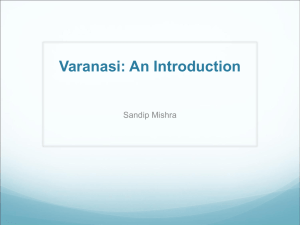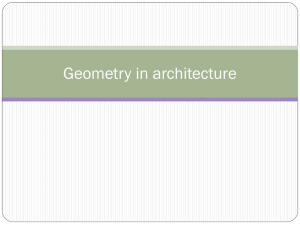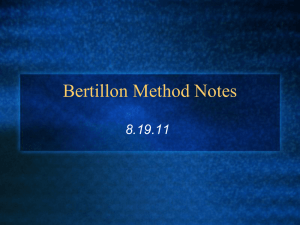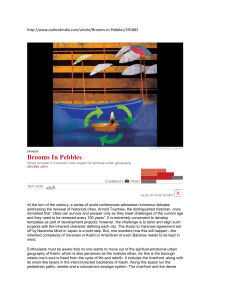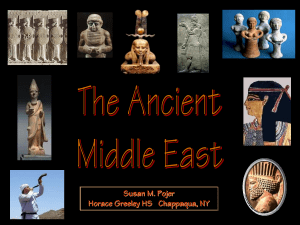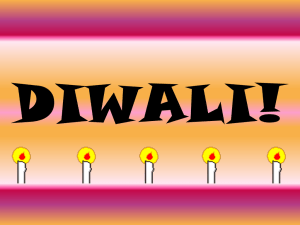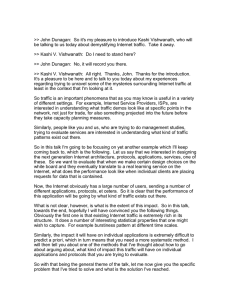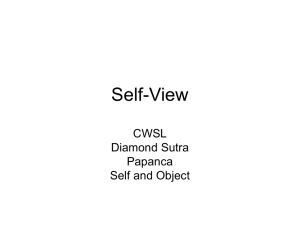Visit to Uttarkashi
advertisement
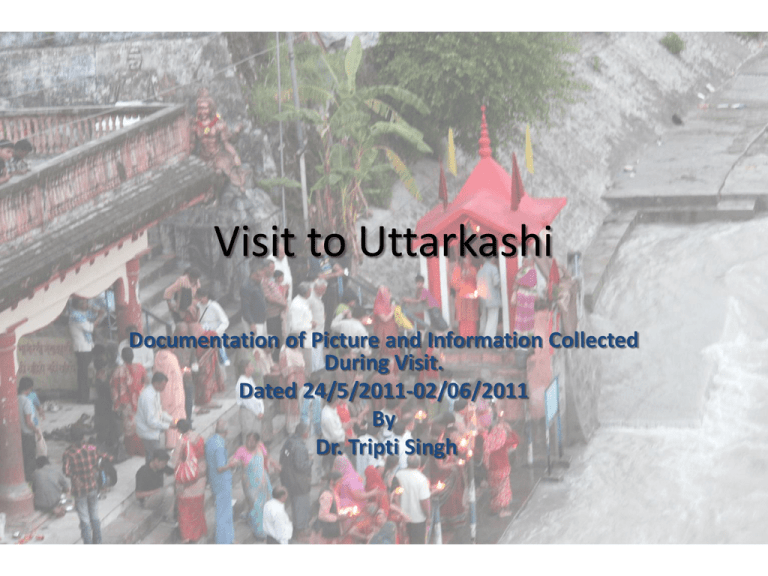
Visit to Uttarkashi Documentation of Picture and Information Collected During Visit. Dated 24/5/2011-02/06/2011 By Dr. Tripti Singh Swayambhu Baba Kashi Vishvanath Temple at Uttarkashi, information about the day (tithi) on which we had visited the temple. We ring the bell when we enter a temple, said to be pleasant to God. Also Devatas are attracted by it’s sound. a well-designed Ghanta or bell can produce long strains of the sound ‘OM.’ The bell is used to give sound for keeping evil forces away. Swayambhu Baba Kashi Vishvanath’s Sivling The emblem of sovereignty, The Trident (Trishul) of Shiva at Kashi Vishvanath temple at Uttarkashi. A women is performing “Havan” for the benefit of the living beings. Ganga Arti lamp’s light denotes the "Atma" (the self). The circumambulation of the lamp in front of Ganga signifies that we (Atma) are a part of ParamAtma’s Ganga. The priest of the ghat performing arti, with chants and arti songs…….. It's a very powerful and uplifting spiritual ritual, and it creates beautiful view to see the diya floating and drown in river water, as if the offering has being accepted. The sadhus who are solely dedicated for achieving the fourth and final goal of life - liberation (moksha) in Hindu religion. Vishwanath Mandir is Uttarkashi’s most venerated temple and draws a huge number of devotees from across India through out the year. Dr. Rashmi Sanghi shooting a video interview of a devotee. Main Pandit ji tells that the Vishwanath Mandir in Uttarkashi is a replication of the Vishwanath temple in Varanasi and it is said that, in Kalyug, Lord Shiva will move to Uttarkashi from Kashi. The idol (murti) emerged from the earth on its own called as “swayambhu”. Pandit ji tells that “above the shivling, a Shri Yantra is carved on the ceiling”. The temple structure was built out of stone by King Pradyuman Shah over 350 years ago”. Thank you!
